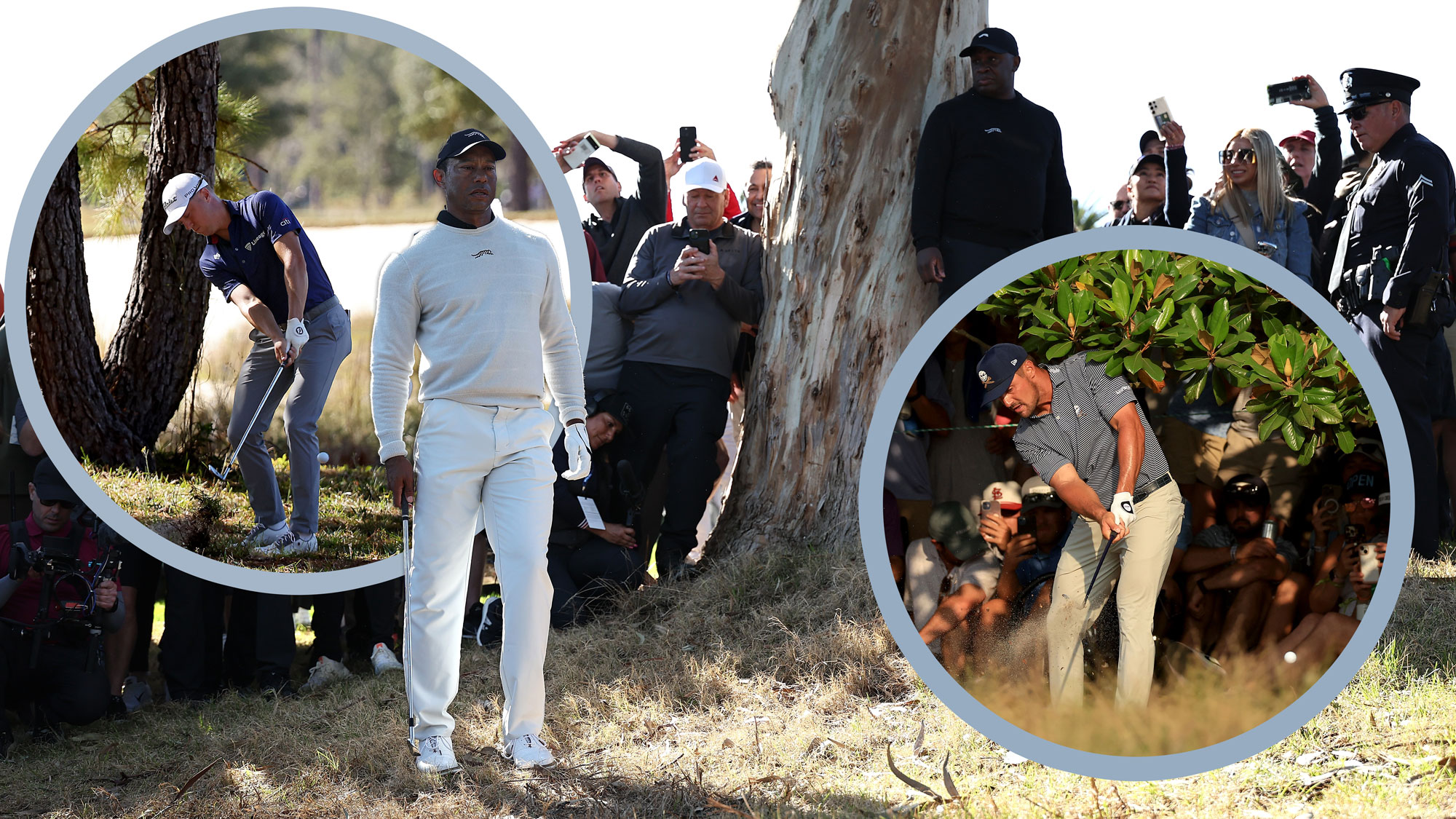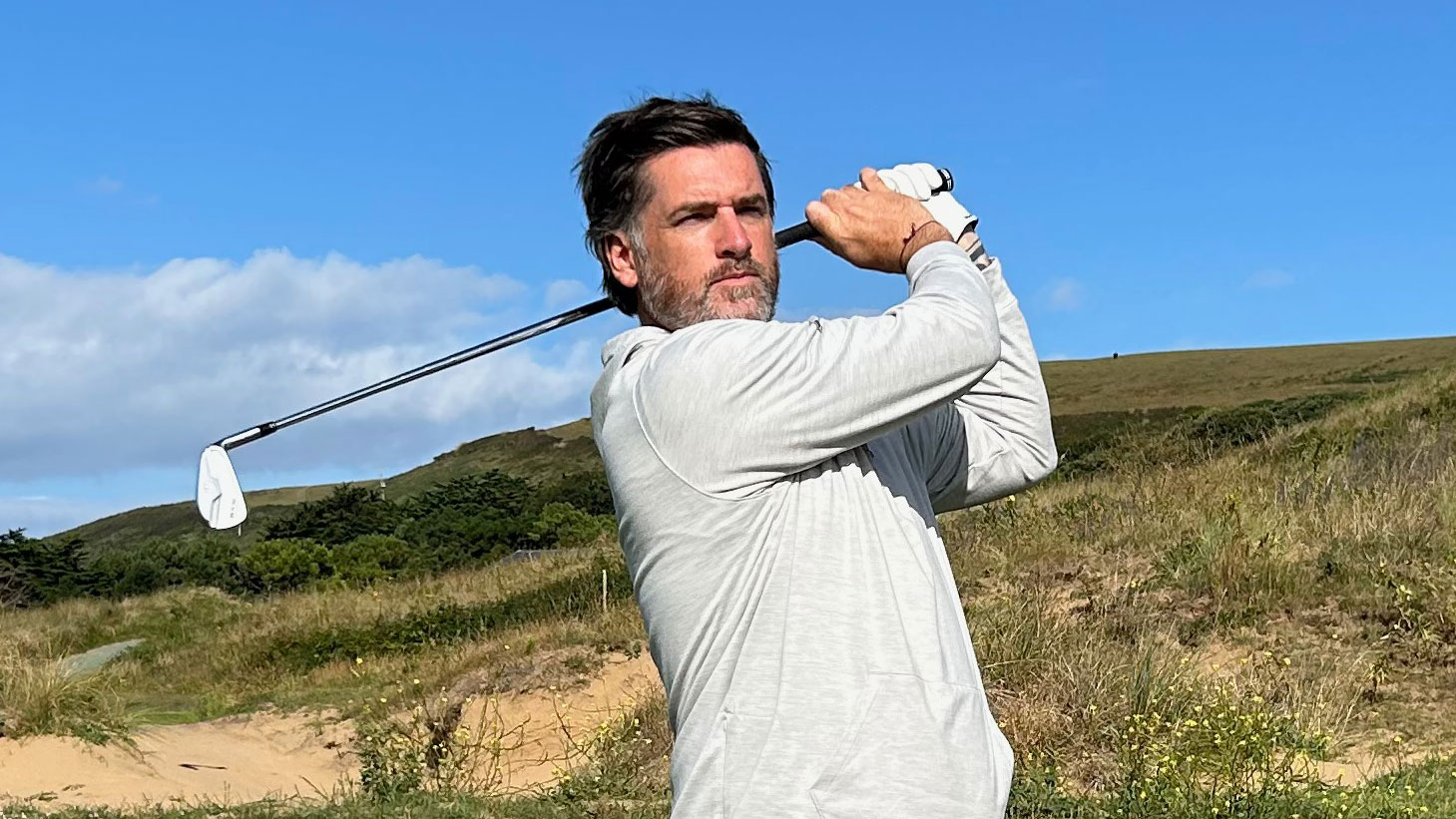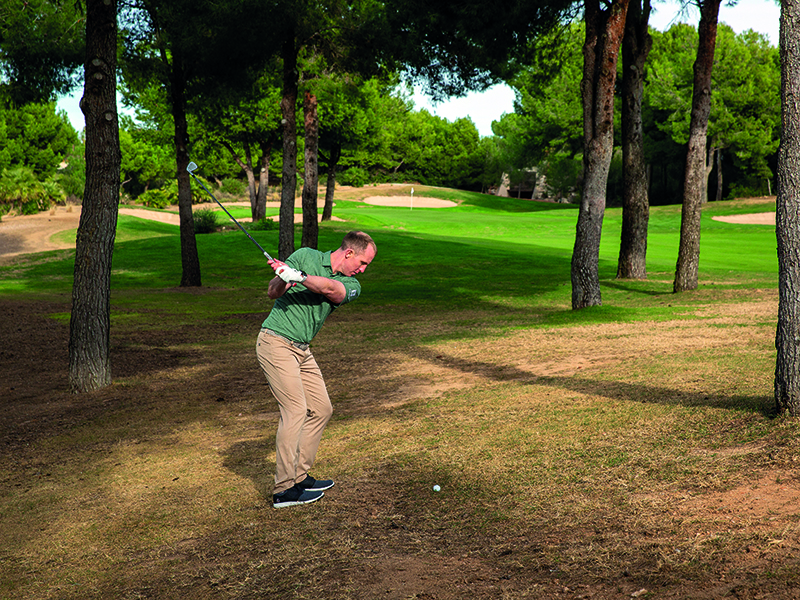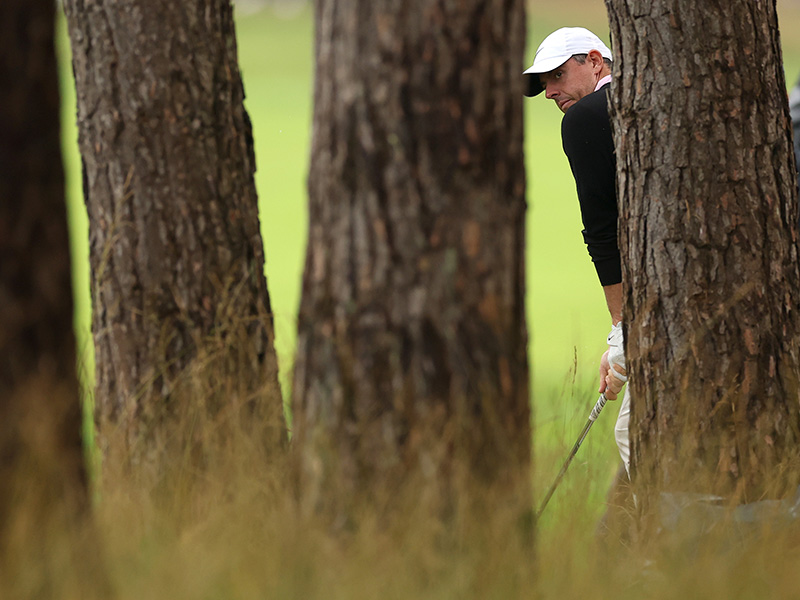Executing This Golf Shot Is Far More Complicated Than You Think... But Mastering It Will Save Your Score
Occasionally finding trouble on the golf course is inevitable, but knowing how to play this crucial shot will help you to keep big numbers off your scorecard

Joe Ferguson

Subscribe to the Golf Monthly newsletter to stay up to date with all the latest tour news, equipment news, reviews, head-to-heads and buyer’s guides from our team of experienced experts.
You are now subscribed
Your newsletter sign-up was successful
Want to add more newsletters?

Delivered daily
Daily Newsletter
Sign up for all the latest tour news, gear reviews, head-to-heads and buyer’s guides plus features, tips from our top 50 coaches and rules advice from our expert team.

Once a week
Kick Point
Sign up to our free Kick Point newsletter, filled with the latest gear reviews and expert advice as well as the best deals we spot each week.

Once a week
Women's Golf Edit
Sign up to our free newsletter, filled with news, features, tips and best buys surrounding the world of women’s golf. If you’re a female golfer, you won’t want to miss out!
Sometimes on the golf course, our 'fairway finder' fails us and we find ourselves in a tricky spot in the trees. The low punch shot is something that amateur golfers rarely practice, but one that could help you to escape trouble unscathed.
There is often a lot of complacency with this shot, but in truth it's actually far more complicated than your average shot from the middle of the fairway. There is a lot going on and plenty to consider, so strategy is going to be important.
In the scenario outlined in the video below, PGA Pro Joe Ferguson finds himself in the trees off the right-side of the fairway with no other option than to get the ball back into play. In this article, he shares his top tips on how to execute an often overlooked but crucial skill for all amateur golfers...
How Do I Hit A Low Punch Shot Out Of The Trees In Golf?

Joe has worked in the golf industry for nearly 20 years in a variety of roles. After a successful amateur career being involved in England squads at every age group, Joe completed his PGA degree qualification in 2014 as one of the top ten graduates in his training year and subsequently went on to become Head PGA Professional at Ryder Cup venue The Celtic Manor Resort.
Equipment has always been a huge passion of Joe’s, and during his time at Celtic Manor, he headed up the National Fitting Centres for both Titleist and Taylormade.
As you can see in the video, due to the rather unfortunate position I have put myself in, I only really have two options. The ambitious, higher-risk play would be to go through a narrow five or six yard gap on a more aggressive line, but that shot is fraught with danger.
The overhanging branches increase the difficulty of the shot, and while it's doable in the right situation I am not sure the extra 20 yard gain is worth the risk.
The other option, and certainly the more sensible play, is to knock the ball out to the left and get it back onto the short stuff. This avenue is still not simple, but it's the percentage play and it's worth spending some time rationalising this in your head before committing to your shot.

Sometimes our trusty 'fairway finder' disobeys us, so having the right shot in your repertoire is essential to save your scorecard
The first thing I do when making a decision on how to play this shot is look at the lie. The area around your ball will tell you plenty about what you can expect to realistically achieve, so surveying the area is a crucial part of your pre-shot routine.
Subscribe to the Golf Monthly newsletter to stay up to date with all the latest tour news, equipment news, reviews, head-to-heads and buyer’s guides from our team of experienced experts.
In the scenario on the video, I have drawn a relatively good lie with the ball sitting ok on some relatively hardpan stuff. As I demonstrate, a good position gives me plenty more options in terms of shot selection than if the ball had rolled five yards to the right and ended up in long, wispy grass.
Let's say you've lucked out with a good lie, the next things you need to consider is how far you need the ball to carry and how much run-out you've got the other side - as these factors will determine which club you are going to pick.

Playing the percentages in terms of strategy when out of position will certainly save you shots in the long run
A lot of golfers will walk in, immediately pull their least lofted iron (5-iron for many), and aim to stab it through the gap.
Often, however, that club won't make the carry you need - meaning you find yourself in a position where you are playing a similar shot again and still don't have a direct line to the green.
For argument sake, let's say the ball does carry out of the trees, getting it to stop before the rough on the other side of the fairway is going to be tricky, so let's think about which other options we have in the bag.
A 9- or an 8-iron is going to create too much height on the shot and will likely ricochet off the branches and leave me in a world of pain. In my experience, a 6-iron is usually a smart way to go, but it will depend on where you want to leave yourself for your next shot in.

Even the best players in the world sometimes find themselves in tricky spots on the golf course... but their preparation helps them to often escape unscathed
From a technical point of view, this shot is all about controlling the flight of the ball. The first thing I do when setting up for a shot like this is 'choke down' on the club, so move my hands further down the grip towards the shaft.
Visualisation is also important for this type of shot. Stand directly behind the ball and envisage what the shot will look like in flight including the final outcome. That sends a good message from my eyes to my brain, and ultimately helps me to feel comfortable with what I am about to do.
Keep the ball position slightly back of centre to keep the flight down, and use that visualisation to commit fully to the shot you are about to hit. It might seem odd to practice this type of shot at the range, but it will save you shots so it's well worth investing some time perfecting this skill.

Baz joined Golf Monthly in January 2024, and now leads the instruction section across all platforms - including print and digital. Working closely with Golf Monthly's Top 50 Coaches, he aims to curate and share useful tips on every aspect of the game - helping amateurs of all abilities to play better golf. Baz also contributes weekly to the features section, sharing his thoughts on the game we love and the topics that matter most. A member at Sand Moor Golf Club in Leeds, he looks forward to getting out on the course at least once a week in the pursuit of a respectable handicap.
Baz is currently playing:
Driver: Benross Delta XT
3-Wood: Benross Delta XT
Hybrid: TaylorMade Stealth 4 Hybrid
Irons: Benross Delta XT 5-PW
Wedges: TaylorMade RAC 60, Callaway Jaws MD5 54
Putter: TaylorMade Spider Tour
- Joe FergusonStaff Writer